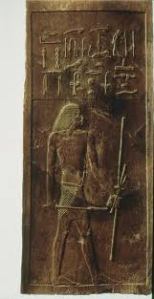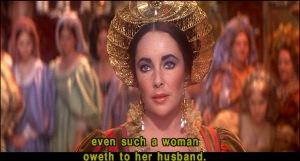Seven is thought to be a sacred number
Because it rhymes with heaven.
Seven is thought to be a sacred number
Because it rhymes with heaven.
მისტიკური ტრიადა
3. Sigur Ros – The nothing song
 “Once upon a time, I, Zhuangzi, dreamt I was a butterfly, fluttering hither and thither, to all intents and purposes a butterfly. I was conscious only of my happiness as a butterfly, unaware that I was Zhuangzi. Soon I awakened, and there I was, veritably myself again. Now I do not know whether I was then a man dreaming I was a butterfly, or whether I am now a butterfly, dreaming I am a man. Between a man and a butterfly there is necessarily a distinction. The transition is called the transformation of material things.”
“Once upon a time, I, Zhuangzi, dreamt I was a butterfly, fluttering hither and thither, to all intents and purposes a butterfly. I was conscious only of my happiness as a butterfly, unaware that I was Zhuangzi. Soon I awakened, and there I was, veritably myself again. Now I do not know whether I was then a man dreaming I was a butterfly, or whether I am now a butterfly, dreaming I am a man. Between a man and a butterfly there is necessarily a distinction. The transition is called the transformation of material things.”
“Once Zhuang Zhou dreamed he was a butterfly, a fluttering butterfly. What fun he had, doing as he pleased! He did not know he was Zhou. Suddenly he woke up and found himself to be Zhou. He did not know whether Zhou had dreamed he was a butterfly or a butterfly had dreamed he was Zhou. Between Zhou and the butterfly there must be some distinction. This is what is meant by the transformation of things.”
And here comes the question : “How do I know that enjoying life is not a delusion?”
“შორს იყო განთქმული მისი ოსტატის დედალოსის დიდება. მას მიეწერებოდა ლაბირინთის, ბერძენთათვის ბოლომდე გამოცანად დარჩენილი ნაგებობის აშენება, სადაც კრეტელთაგან დამორჩილებული ათენელები საშინელ ურჩხულს, ხარკაცა – მინოტავრს შესაჭმელად უგზავნიდნენ ნარჩევ ვაჟებსა და ქალებს მანამდე, ვიდრე მინოსის ასულის არიადნეს სიყვარულის შემწეობით თესევსმა არ მოკლა ურჩხული და არ დაიხსნა სამშობლო სამარცხვინო ხარკისგან. დედალოსსავე მიეწერებოდა ადამიანის საუკუნო ოცნების – ცაში ფრენის პირველი განხორციელება და ამ “ამ ექპერიმენტის” საზღაურად საშინელი სასჯელის გაღება – ვაჟიშვილის, იკაროსის, დაღუპვა”.
“There was a boy
A very strange enchanted boy
They say he wandered very far
Very far, over land and sea
A little shy and sad of eye
But very wise was he
And then one day, a magic day
He passed my way, and while we spoke
Of many things, fools and kings
This he said to me
“The greatest thing you’ll ever learn
Is just to love and be loved in return”
“The greatest thing you’ll ever learn
Is just to love and be loved in return”
ეგვიპტელებს სჯეროდათ, რომ გარდაცვალების შემდეგ სულები აგრძელებდნენ ცხოვრებას და ცდილობდნენ წარმოედგინათ ის. ნებამუნის სამარხზე დახატული ბაღი ის ადგილია, სადაც ნებამუნი სიკვდილის შემდეგ მოხვდება. თუმცა როგორც ცნობილია, ის ძალიან არ განსხვავდება მდიდარ ეგვიპტელთათვის დამახასიათებელი, რეალური / ამქვეყნიური ბაღებისგან. ფრაგმენტის ცენტრში გამოსახულია თევზებითა და ფრინველებით სავსე ტბორი, რომელსაც ჩრდილისმომფენი ხეებისა და ყვავილების მწკრივი არტყია. შემსრულებელს გულმოდგინედ გამოუსახავს ხეხილის სხვადასხვა სახეობა ( სიკომორო – ლეღვსულელი, ფინიკი პალმები და დუმპალმები) და ამასთან არც ნაყოფის სიმწიფის განსხვავებული მაჩვენებლების დანატენა დავიწყნია.
ზედა მარჯვენა ფლანგზე გამოსახული ქალღმერთი სასმელსა და ხილს სთავაზობს ნებამუნს. ცნობილია, რომ ავტორს ქალღმერთის კანი თავდაპირველად წითლად შეუღებავს, შემდეეგ კი, როგორც წესი და რიგი მოითხოვდა ყვითლად გადაუღებავს.
ნამუშევარი თარიღდება დაახლოებით ძვ.წ. 1400 წ.
ყოველთვის მაინტერესებდა თუ რა განაპირობებდა ეგვიპტელთა გამომსახველობით მანერებს. ყველასთვის ცნობილია მათი შრომისმოყვარეობა და გულმოდგინება, რისი წყალობითაც პირამიდები ააგეს. და მაინც, მიკვირდა, რომ ხალხი რომელიც სიზუსტის მოყვარულია და რომელიც მილიმეტრებით თვლის კონსტრუქციას, კედლის მოხატვის დროს ნაივურ შეცდომებს უშვებდა. ნუ, მე მეგონა რომ უშვებდა.
 ეს ჰესირეა. ნამუშევარი თარიღდება ძვ.წ. 2778-2723 წწ. ისევე როგორც ყველა ეგვიპტურ ფრესკაზე, აქაც შეგვიძლია დავინახოთ, რომ : ჰესირეს სახ პროფილშია აღბეჭდილი, მაშინ როცა თვალები წინხედიდანაა დახატული. ასევე წინხედშია მისი მხრები, მაშინ როცა ხელები და ფეხები გვერდიდანაა გამოსახული.
ეს ჰესირეა. ნამუშევარი თარიღდება ძვ.წ. 2778-2723 წწ. ისევე როგორც ყველა ეგვიპტურ ფრესკაზე, აქაც შეგვიძლია დავინახოთ, რომ : ჰესირეს სახ პროფილშია აღბეჭდილი, მაშინ როცა თვალები წინხედიდანაა დახატული. ასევე წინხედშია მისი მხრები, მაშინ როცა ხელები და ფეხები გვერდიდანაა გამოსახული.
ახსნა ვიპოვე ე.ჰ. გომბრიხის “ხელოვნების ამბავში” : “ასეთი მარტივი სურათი კარგად გვაცნობს მხატვრის მუშაობის წესს. ხშირად ბავშვებიც ასე იქცევიან, ოღონდ ეგვიპტელები ამ მეთოდს ბავშვებზე ბევრად თანმიმდევრულად იყენებნენ. ყოველივე მისთვის ყველაზე ხელსაყრელი კუთხით უნდა გამოსახულიყო. თავი ყველაზე კარგად პროფილით აღიქმება, ამიტომაც იგი გვერდიდან იხატება; მაგრამ თუ თვალის წარმოდგენა მოგვინდა, მას წინიდან დანახულს წარმოვიდგენთ ხოლმე. შესაბამისად, სახის გვერდხედზე თვალის წინხედია მოთავსებული. სხეულის ზედა ნაწილი, მხრები და მკერდი უკეთ წინიდან აღიქმება, რადგან ხელებისა და ტანის ბმასაც აქედან ვხედავთ; მაგრამ მოძრავი ხელ-ფეხი გვერდიდან უკეთ ჩანს. სწორედ ამიტომ გამოიყურებიან ეგვიპტელები ამ სურათებზე ასე ბრტყლად და დაგრეხილად…” “….. ისინი (ეგვიპტელები) იმ წესს მისდევდნენ, რომელიც საშუალებას აძლევდათ, ადამიანის ფორმისთვის არაფერი მოეკლოთ, რაც კი მნიშვნელოვნად მიაჩნდათ.”
 ბოლო დროს სულ სიკვდილზე ვფიქრობ. არ მინდა შეგეშალოთ – სუიციდს არ ვგულისხმობ, ჩვეულებრივ, ბუნებრივ ან თუნდაც ხელოვნურ სიკვდლზე. ყველაფერი კი ჟოზე სარამაგოს დამსახურებაა.
ბოლო დროს სულ სიკვდილზე ვფიქრობ. არ მინდა შეგეშალოთ – სუიციდს არ ვგულისხმობ, ჩვეულებრივ, ბუნებრივ ან თუნდაც ხელოვნურ სიკვდლზე. ყველაფერი კი ჟოზე სარამაგოს დამსახურებაა.
ეგზისტენციალიზმი რომ მიყვარს, ამას ბლოგიდანაც შეიტყობდით. რა არის სიცოცხლე და რა სიკვდილი, არსებობს თუ არა თავისუფალი ნება, კანონზომიერება წარმართავს ჩვენს არსებობას თუ შემთხვევითობა? – კარგი კითხვებია, დაუსრულებელი მსჯელობით, რომელიც დაახლოებით იმას ჰგავს – ჭიქა ნახევრად სავსეა თუ ნახევრად ცარიელი. ზოგი ერთს ემხრობა, ზოგი მეორეს, ფაქტი კი ის არის, რომ ორივე ერთდროულადაა.
მას შემდეგ, რაც პირველყოფილმა ადამიანებმა ემოციური დამოკიდებულება იგრძვნეს თანატომელთა თუ თანათემელთა მიმართ, დაიწყეს მათი გარდაცვალების გულწრფელი განცდა. მოიგონეს დაკრძალვის ცერემონია, შექმნეს ილუზია, რომ მერე სადმე, პირობითად სამოთხეში ერთმანეთს შეხვდებოდნენ და გამოიგონეს რელიგია, რაც თავდაპირველად, რა თქმა უნდა, სოციალურ ორგანიზაციას ნაკლებად გულისხმობდა და აწ სუბორდინაციული ინსტიტუტისგან მეტად ნაივური რიტუალებითა და შეხედულებებით განსხვავდებოდა. იმ მომენტიდან, როცა ერთმა ქვის ხანის მკვიდრმა, მეორეს გარდაცვალება დაიტირა ( შესაძლოა სახის დახოკვითა და სულისწამღები შეძახილებით), სიკვდილი ყველას შეძულდა, როგორც ის გარდაუვალი ძალა, რომელიც ადამიანებს ერთმანეთს აშორებს.
წარმოიდგინეთ, გაიღვიძეთ და სიკვდილი არ არსებობს. ბედნიერები უნდა ვიყოთ ალბათ, არა? მაგრამ ჟოზე სარამაგო ამ გამორიცხული მოვლენის დაშვების ოდნავი ალბათობითაც კი საგანგაშო სურათს ხატავს – წარმოიდგინეთ, 21-ე საუკუნის, საათის მექანიზმივით აწყობილ ქვეყანას ერთი მნიშვნელოვანი ჭანჭიკი რომ ამოაძრო. დახშული სივრცე, სადაც არსებობენ და არ კვდებიან მოხუცები, რომელთა რიცხვი ყოველ დღე მატულობს, გაკოტრებული დამკრძალავი ბიუროები.. იქით მთავრობა კედელს ეხეთქება, აქეთ სადაზღვევო კომპანიები, მოხუცებულთა თავშესაფრები და საავადმყოფოები ემსგავსება შეშლილებს. სრული პანიკა, სრული ქაოსი. სადღაც ქრება თითქოს საყოველთაოდ მიღებული და დაკანონებული მორალური ფასეულობებიც. საოცარია, არ ვართ მზად იმისთვის, რომ ერთ ერთი სანუკვარი ოცნება რეალობად ვაქციოთ.
თუ უკვდავება და მარადიული სიცოცხლე არა, იქნებ სიკვდილმა იმდენი გულისხმიერება მაინც გამოიჩინოს, რომ წინასწარ გაგვაფრთხილოს ამა და ამ დღეს ამოგხდება სული და იქამდე შენი საქმეები მოაგვარეო. მიმზიდველი იდეაა, მაგრამ სარამაგო აქაც ჩიხს ხედავს – ამას ადამიანებისთვის მეტი ტანჯვა მოაქვს მხოლოდ, და სულ ესაა.
სულ ესაა მეთქი.
ჩემი ბლოგის ერთ-ერთ უპირატესობად იმას ვთვლი, რომ არასოდეს მიწერია იმაზე, თუ რამდენი კოვზი შაქარით დავატკბე ჭიქა ყავა (უშაქროდ ვსვამ და ალბათ იმიტომ), რა ვიგრძენი, როცა წვიმა წამოვიდა, ან როგორ მატიკნა გული სატრფოსთან განშორებამ. პირადი ცხოვრების აფიშირება is not my style. მარტივი მიზეზის გამო – ჩემს გარდა არავის, დიახაც, სულ არავის აინტერესებს მსგავსი დეტალები. მარტო მე შეიძლება მომეშალოს ნერვები გაღვიძებულს კბილის პასტის “წюბიკი” ცარიელი რომ დამხვდა. აი, რატომ შეიძლება ვინმემ განიცადოს როგორ შემომხედა შინაბერა, უკაცრავად და გადახრწნილმა, დიახ, სრულიად დაობებულმა მეზობელმა, როცა შორტებით გავედი გარეთ, მე, კლდემამოსილი, თავად სიწმინდის, აჰა, სიცოცხლის დამცველთა, ექიმთა ნაშიერი.
მეორე მხრივ, ამ ქვეყანაში არავის აინტერესებს კითხვა და წიგნებზე დაწერილი ჩემი “სტატიებიც” ისეთივე პოპულარობით გამოირჩევა, როგორც ჩემი ბლოგ-პოსტები მხატვრობის შესახებ. იდეაში ლუზერი ვარ.
ამიტომაც გადავწყვიტე, რამდენიმე პოსტი ვგლიჯო ისეთ თემებს, რომლებიც ნერვებს იმედია ერთ და ორ, ან იქნებ სამ ადამიანს მაინც უშლის.
დავიწყოთ იმით, რომ არაფერი გვეშველება. ხო, სწორად გამიგე, მე პესიმისტს მეძახიან, მაგრამ თავს რეალისტად ვთვლი და სწორედ ამიტომ ვითვლი ხუთამდეც – ერთი, ორი, სამი, ოთხი და ხუთი.
რატომ არ გვეშველება – კაროჩე, ვიღაც ზანგმა ტიპმა იუთიუბზე დადო ვიდეო რა, ჰოდა კაროჩე ბაზრობს ქართველებიო მაჩმორებენო რა, ჰოდა აბა რა ეგონა მაგ ჩემანალას, მაგას, აქაო და საქართველოში ვარო და ჩვენს დებს მოვატყვნევინებთ? < აი ამიტომ. ასეთი აზროვნების, საუბრის და შეგნების გამო. ვიქნებით სიბნელეში, როგორც გარშოკზე შემომჯდარი ბავშვი, რომელიც შიშით კანკალებს, იმიტომ რომ პირველად დატოვეს მარტო იმის საქნელად. ჰოდა, ასე ვიქნებით. და მეცოდება მე ყველა ის ერთი, ორი ან იქნებ სამი ადამიანი, ასე რომ არ ფიქრობს. ჰოდა გამხნევებთ – მე თქვენთან ვარ მეგობრებო! ურა, ტაში, ნამგალი და უროც! ურა და ურო! თავში დიდი, თანაც სქელი, იქნებ გრძელი ურო!
მეორე მხრივ რთულია არ იფიქრო იმაზე, რომ გლობალიზაციის პროცესში, გადაადგილების საშუალებათა სიხშირე და აშკარა გამარტივება თავისთავად გულისხმობს კულტურულ ელემენტთა გაცვლა-გამოცვლას, რამაც შესაძლოა თავის დროზე, მართლაც შეცვალოს სამყაროს დემოგრაფიული სიტუაცია. ჰოდა არა ქართველმუჟიკურად, ან ქართველჟენშინურად, მართლა ვფიქრობ იმაზე, თუ რა სურათი გვექნება ოცი, სამოცი, თუ გინდა ოთხმოცი წლის შემდეგ. საქმე მარტო ერთ ჩაშავებულ ქვეყანას ეხება, გულისამრევი სოციალური-ეკონომიკური-პოლიტიკური-კულტურული მდგომარეობით (ამ ოთხ ასპექტს იდეაში ერთი – შეუგნებლობა განაპირობებს), არამედ ზოგადად მსოფლიოს. ყველას სუბიექტური ზრახვები გვაქვს და არც მე ვარ გამონაკლისი – მე მინდა ვიმოგზაურო. მაინტერესებს ვნახო სამყარო თავისი მრავალფეროვნებით, ინდივიდუალიზმით, ადამიანთა გნსხვავებული სოციალური ჯგუფებით, განსხვავებული მორალური თუ ეთიკური კოდექსებით და დიახაც კონკრეტული ანთროპოლოგიური მონაცემებითაც. ასე რომ, მთავარია ჩემი მოგზაურობა იქამდე მოვასწრო, სანამ მთელი მსოფლიო ერთ მთლიან მასად არ გადაიქცევა, არ წაიშლება საზღვრები პირდაპირი და არაპირდაპირი მნიშვნელობთაც, და როგორც ლუდოვიკო იტყოდა, ჩემს მერე ყველაფერი ჭირსაც წაუღია ( არ მახსოვს სიტყვა-სიტყვით ასე თქვა თუ არა, ამიტომაც ბრჭყალები ზედმეტ სიამოვნებად მივიჩნიე).
მოკლედ, ერთია საფუძველს/ინტელექტს/შეგნებას – მოკლებული არაჯანსაღი დამოკიდებულება, და მეორეა მასობრივი ტენდენცია, რომელიც ჩემს ოცნებებს უქმნის საფრთხეს. თუმცა დიდი იმედი მაქვს ეს მანამ არ მოხდება, სანამ სული ამომხდება.
The literary works which end happily we call comedies. So their final parts define whether they are tragedies or not. William Shakespeare wrote many comedies, and all of them give the readers a lot of pleasure – you read them fast, you laugh, imagine the characters and their actions and you understand that they are alive even today. How can anybody read seriously the scenes when Nick Bottom is boasting and representing the kind of people we often meet nowadays. Or what about Pack, who is so witty that his tricks make everybody smile. But apart from this, I suppose that each comedy by William Shakespeare has a tinge of tragedy in it and this is the topic I am going to discuss.
 I hope we all know the plot of “ The Taming of the Shrew”. The main character can’t be easily detected, but I suppose it’s Katharina, Bapista’s elder daughter. The whole comedy goes around her – she is the character who should be tamed. Because of her independence and strong desire not to be a weak person, who always relies on other, she is thought to be out of range – yes, she is not a part of society, nobody can understand her and her wishes are unknown for everybody in that play. During the play she once says :
I hope we all know the plot of “ The Taming of the Shrew”. The main character can’t be easily detected, but I suppose it’s Katharina, Bapista’s elder daughter. The whole comedy goes around her – she is the character who should be tamed. Because of her independence and strong desire not to be a weak person, who always relies on other, she is thought to be out of range – yes, she is not a part of society, nobody can understand her and her wishes are unknown for everybody in that play. During the play she once says :
“Why, and I trust I may go too, may I not?
What, shall I be appointed hours,
As though, belike, I knew not what to take,
And what to leave? Ha! “ – from these words we can deduce that she is an independent woman, who can chose her path of life herself. She does not obey the rules reigned in the society where she leaves – she is supposed to be nice and calm, as she is a woman, but she does not act like that. Simply, she does not agree that women have to please men. She desires to demonstrate the power of will which has a woman, who is strong a self-confident. But people around her, even her father or her sister can’t understand her feelings. She is rude not because of her inner character, but only in order to show that not all women are obedient, that women also have their own opinions and aims which may not match with those of others. The outlook on the positions of male and females are the reason why Baptista chooses Bianca as his favourite daughter. Baptista can’t get on with Katharina’s rebellious character, with her actions that are out of norm. Instead of trying to understand her, he chooses simply not to pay attention on her at all and takes care of only Bianca. Katharina suffers from jelousy and her pain grows. She knows that, if she continues to defend her ideas and positions, nobody will merry her, neither her father nor her sister will be next to her. Being a “shrew” as they call it, means being all alone, isolated from everyone. May be if she had felt the support from her family she would not have married to Petrucio so fast, but she know that the rules which are followed in her neighborhood will never let her be what she wants to be.
Although “ The Taming of the Shrew” is considered to be a comedy, I do think that the marriage between Katharine and Petrucio is a tragedy of a heroine, who distinguishes from other because of her individuality. She is so open-minded, so progressive and suddenly she gives up and obeys her husband. Her fate is tragic – she has to refuse her wills in order to avoid lonliness. Yes this literary work by William Shakespeare ends happily and the lovers make couple, nobody stays single and the harmony is achieved, but let us think a little – is it fair to sacrifice your character in order to fit in the society? That’s what Cathareine had to.
 “A Midsummer Night’s Dream” is also another comedy by William Shakespeare. Here we meet a lot of magic, unbelievable scenes and characters made out of fantasy. At the end of the play, Hippolyta is with Theseus, Hermia with Lysander, Demetrius with Helena, Oberon with Titania. It’s obvious that the ending is satisfying but even in this play, we can find a character who suffered a lot. That’s Helena. As Lysander says :
“A Midsummer Night’s Dream” is also another comedy by William Shakespeare. Here we meet a lot of magic, unbelievable scenes and characters made out of fantasy. At the end of the play, Hippolyta is with Theseus, Hermia with Lysander, Demetrius with Helena, Oberon with Titania. It’s obvious that the ending is satisfying but even in this play, we can find a character who suffered a lot. That’s Helena. As Lysander says :
“Demetrius, I’ll avouch it to his head,
Made love to Nedar’s daughter Helena, ..” Helena and Hermia are the best friends. They grew up together and share a kind of priceless memories . Helena falls in love with Demetrius, who used to love her too. But suddenly his heart changes and he admits his infatuation for Hermia. Just imagine, a man who you love, and who loves you too ( or at least says that loves you), one day declares loving your best friend. How would you feel? – may be frustrated or devastated, but would you follow him in a dark forest, while crying out your grief and misery? Would you face a danger in the name of love? Even if you were disdained, would your love be so deep that you could carry on fighting for you happiness? I think really few people are able of committing such deeds. Despite the fact that Helena’s efforts are infertile, she keeps trying, she never gets frustrated and in contrast every single “no” from Demetrius gives her a power to fight even stronger. But nothing seems to help – only magic. If we pretend to be Helena, whose lover follows her best friend, and the only way to obtain your happiness is to go to the foreteller – that’s what modern pattern of that situation is.
 Next comedy by William Shakespeare I would like to discuss is “The Merchant of Venice”. The first theme that surprised me is that unfortunately we can’t find unconditional love there – instead the reason why Basanio decides to get married is his economical condition – he is short of money, wholly in debts and he needs a fiancée who would restore his fortune. So he goes to Portia, and after passing a very difficult test he is able to marry her. Despite the fact that Basanio’s deeds stem from pragmatic reasons, Portia praises him a lot and they make the example couple in the play and that is really sad.
Next comedy by William Shakespeare I would like to discuss is “The Merchant of Venice”. The first theme that surprised me is that unfortunately we can’t find unconditional love there – instead the reason why Basanio decides to get married is his economical condition – he is short of money, wholly in debts and he needs a fiancée who would restore his fortune. So he goes to Portia, and after passing a very difficult test he is able to marry her. Despite the fact that Basanio’s deeds stem from pragmatic reasons, Portia praises him a lot and they make the example couple in the play and that is really sad.
Another problem that we face in that play is about Shylock and the theme of racism. He is depicted so as the readers think he is mean, materialistic and cruel. But I don’t really get why the actions of Bassanio are considered to be virtuous and those of Shylock pragmatic. In fact they both are interested in the economical benefits they can get. In addition, I do believe that Shylock’s a character who was always mocked at because of his nationality. May be in order to become respected by the higher classes of society he decided to earn a lot of money and become powerful. His action toward Antonio reflect all the pain he suffered from during the years. And at the end of the play, it is not Shylock who wins, and the mockers are not punished – instead, he is left without any money and even his daughter ran away from him. He is so tragic. He is unable to defend himself and attack the people back, who disdain him because he is Jewish.